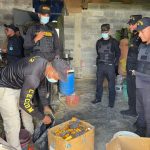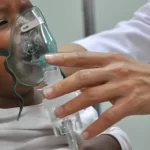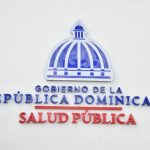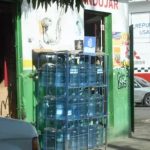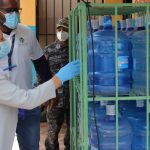New parasitic wasp can save Dominican economy from pest: eurekalert.org

While biocontrolagents come in different shapes, often taking a lot of time for scientists toresearch, test and produce, natural ones always seem to be the better option.Now that Drs. Taveras and Hansson have discovered a new parasitoid wasp speciesin the Dominican Republic, they might have not only met the worst natural enemyfor a widely spread invasive pest corrupting a large part of the essentialpigeon pea crops. They are likely to have found a whole new field forinvestigation into the potential weapons against the eradicator of up to 76% ofthe essential crop. Their study is available in the open access Journal ofHymenoptera Research.
The find of this newgregarious endoparasitoid wasp, called Pediobius cajanus, is also the firsttime representative of this genus has been retrieved from the Asian fly. Thisinvasive pest is estimated to destroy a huge part of the pigeon pea crops, aculture which is an essential food source for tropical America, a large part ofthe export and even has medicinal value. Therefore, the new species is veryimportant not only in terms of the exploration of the biodiversity in LatinAmerica, but also in economical sense.
Even when treatedregularly with insecticides, the Asian fly manages to corrupt as much as 27% ofthe Dominican pigeon pea crops, a previous study shows. Although a precisefigure of the damage cannot be provided due to large variations between localitiesand the impossibility of tracking the whole span of the pea cultivation areas,there is the case of the town of Rancho Los Vargas, Puerto Plata, where in 2012the loss of the culture reached 76%.
On the other hand,the new wasp species was found to kill an average of 25% of the Asian flylarvae in the researched areas. In comparison, the previously known enemies ofthe pest are accountable for only 2%. This is why the scientists are nowproposing the new species as a biocontrol agent.
In conclusion, theauthors suggest that the parasitoid wasp is likely distributed across a muchlarger area. They believe that the new species could also be found over theentire island of Hispaniola, on neighboring islands in the Caribbean and evenin the tropical parts of the mainland in the Americas. Its record anddistribution both call for a further investigation into the potentialimplementation of the wasp in controlling the Asian fly.


